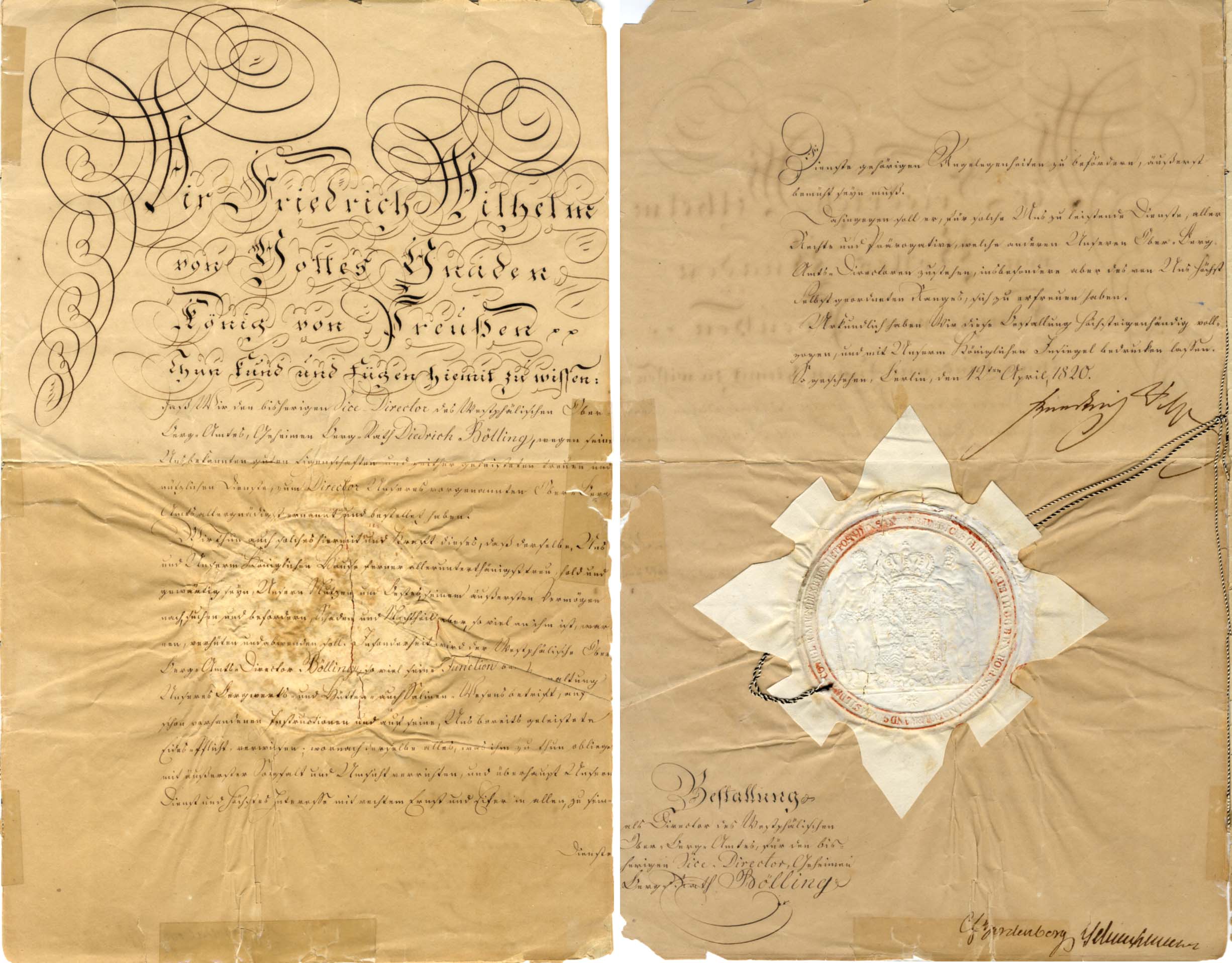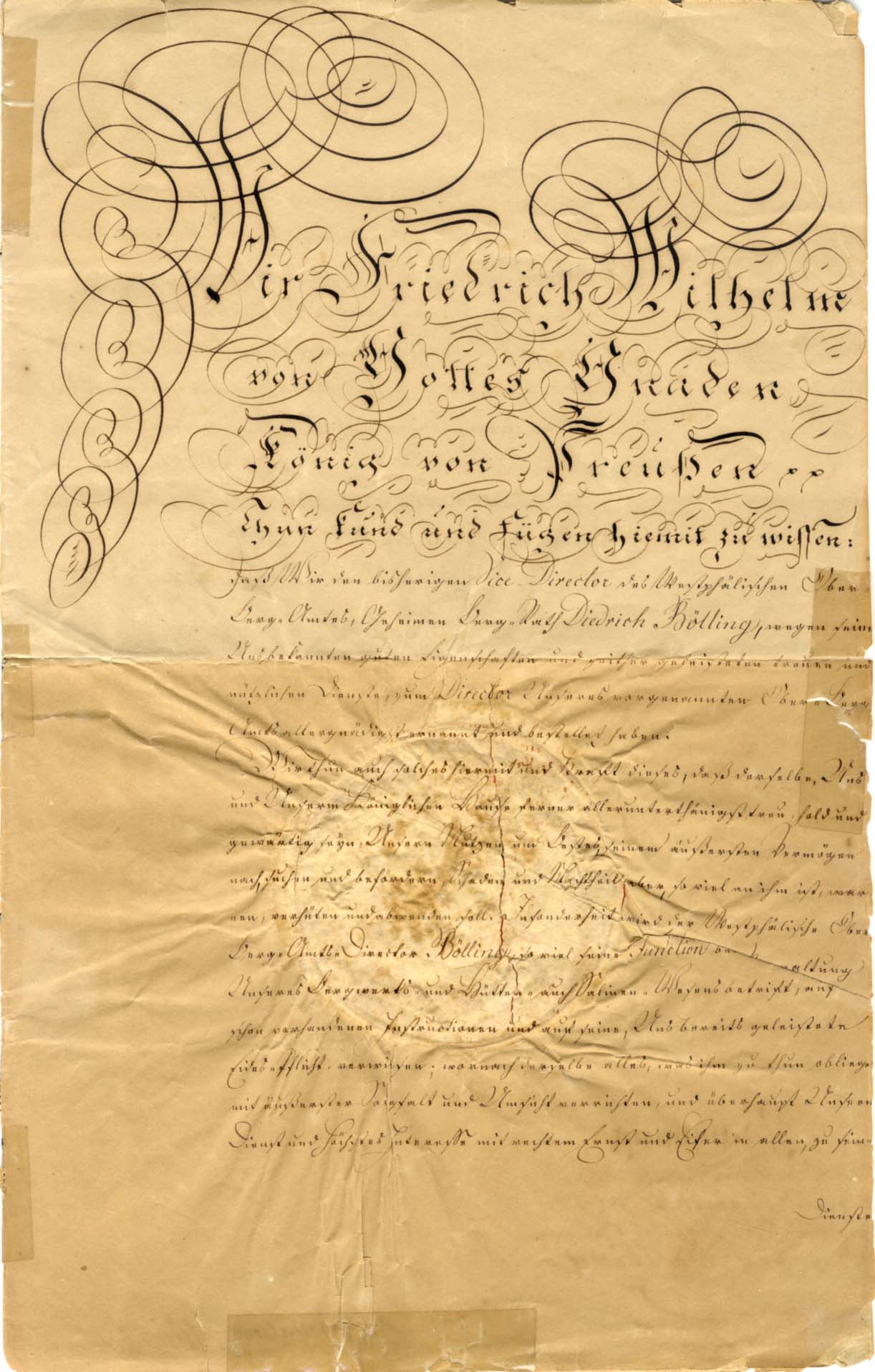Beschreibung
"Wir Friedrich Wilhelm,
von Gottes Gnaden König von Preußen [etc. etc.]
bisherigen Vice-Director [...] zum Director [...]. Berlin, den 12ten April 1820.
Friedrich Wil."
Weitere Infos zur Person
Profession:
(1770 - 1840) König von Preußen von 1797 bis 1840 - er regierte Preußen während der schwierigen Zeiten der Napoleonischen Kriege und des Endes des Heiligen Römischen Reiches
Year of Birth: 1770
Frederick William III was the King of Prussia from 1797 until his death in 1840. He was the son of Frederick William II and Louise of Mecklenburg-Strelitz, and the grandson of Frederick the Great. He was a military reformer, and adopted the Prussian military reforms of his grandfather. He was also an enlightened ruler, who sought to improve the lives of his subjects.
Frederick William III ascended to the throne of Prussia in 1797, succeeding his father. He initially followed the policies of his father, but soon began to implement military reforms which had been suggested by his grandfather, Frederick the Great. He began to modernize the Prussian army, introducing new tactics and weapons, and replacing outdated equipment. He also created a new system of military academies, which allowed for a more efficient and professional military force.
Frederick William III was also an enlightened ruler, and he sought to improve the lives of his subjects. He abolished serfdom, and granted freedom of religion. He also introduced a number of social reforms, such as the establishment of a welfare system, public education, and the abolition of capital punishment. He was also a patron of the arts, and commissioned many works of art and architecture.
Frederick William III also sought to expand the influence of Prussia abroad. He joined with Britain and Russia to form the Third Coalition against Napoleon, and fought in several battles against the French. He was eventually defeated by Napoleon, and Prussia was forced to cede some of its territory to France. Despite his defeat, Frederick William III gained recognition as a great warrior and diplomat, and he is often remembered as one of Prussia's greatest rulers.
Frederick William III died in 1840, and was succeeded by his son, Frederick William IV. He was remembered as a great ruler, and his reforms are still remembered today. He is also remembered for his military reforms, which helped to modernize the Prussian army and make it one of the most formidable forces in Europe.
Frederick William III is remembered as one of Prussia's greatest rulers, and his reforms still have an effect on modern Germany. He was an enlightened ruler, who sought to improve his people's lives, and a great military leader, whose reforms helped to make Prussia a major power in Europe. He is remembered as a great patron of the arts, and a great diplomat, whose legacy still lives on today.
Echtheitszertifikat
Zahlung & Sicherheit
Deine Zahlungsinformationen werden sicher verarbeitet. Wir speichern keine Kreditkartendaten und haben auch keinen Zugang zu deinen Kreditkartendaten.



